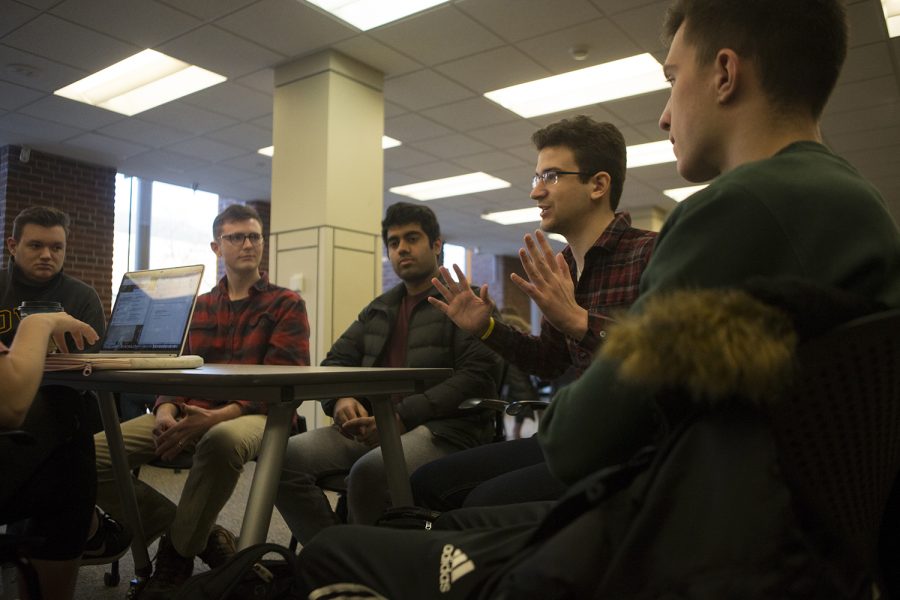Opinion: Fortnite signifies how video games are changing
The game’s Season 10 conclusion event demonstrates how video games are capturing more global attention and shaping the future.
Dylan Montigney talks about Japan’s esports scene at an interview in the Iowa Memorial Union on Monday, December 10, 2018.
October 16, 2019
When I was younger, I distinctly remember my father telling me not to waste time on video games. They were just a flimsy distraction, he said, and I should do something productive with my time. While my shot at e-sports was erased with my joining the baseball team, that market has only increased in size since my childhood.
Recent events have shown that the mainstream is gradually accepting what was once considered nerd culture. What once sounded absurd five years ago is now a reality — video games have wide-reaching audiences, and severe real life consequences, as well.
Fortnite has just recently ended its 10th season. To celebrate the end of this remarkable milestone, the developers held an event called The End, which drew over over 6 million viewers across streaming platforms such as Twitch, YouTube, and Mixer. Several of these platforms were slowed down and sometimes even crashed from the traffic.
This event drew so much attention that even major news networks are reporting on it. The article from Forbes even got editor’s pick along with almost 140,000 views.
Another growing phenomenon of video games becoming popular, as well, is that non-fiction storytellers are becoming more interested in it.
University of Iowa professor David Dowling has researched how games can be used not only to entertain, but to educate. He pointed to the UN’s release of VR documentaries regarding the situations of refugees as an example of games’ abilities to provide rich narratives.
“It’s media hybridization. Game mechanics are at play, and journalism is here because it always goes to the most powerful media available,” Dowling said.
It’s not just your stereotypical gamer bro that’s getting involved in this now, either. Plenty of celebrities have openly talked about and streamed Fortnite, among them entertainers Drake and Roseanne Barr, and even Major League Baseball pitcher David Price.
There are no signs of e-sports or video games slowing down — quite the opposite in fact. Almost everything related to them is growing more popular.
“It’s the biggest entertainment industry in the world, hands down,” Dowling said. “No one’s going to argue with that.”
The greatest part is that it’s not just in one country. Not just one continent. It’s a global phenomenon, and it’s not just quirky games and competitions that are important in this newfound growth. These are platforms that carry with them significant responsibility.
These competitions and events aren’t just solely for pleasure. As with anything else with an audience, the people everyone is watching have the power to produce a message for good or bad. With the next generations having grown up with video games since day one, it is important to understand the significance that video games will hold in their eyes until the end of time.
As funny as it sounds, video games might just be a foundation for a new era of global culture. You might not share someone’s history, ethnicity, or even language, but you could just as easily enjoy the same game. But even more importantly is the way in which they can be a shared factor by which to draw attention to issues.
“Games can be that cultural glue, that cultural experience, that soccer has been. It does connect cultures,” Dowling said.
In the end, there’s no assurance as to what the future holds. But what is certain is that video games and their relevance to society is not going anywhere anytime soon.
Columns reflect the opinions of the authors and are not necessarily those of the Editorial Board, The Daily Iowan, or other organizations in which the author may be involved.





